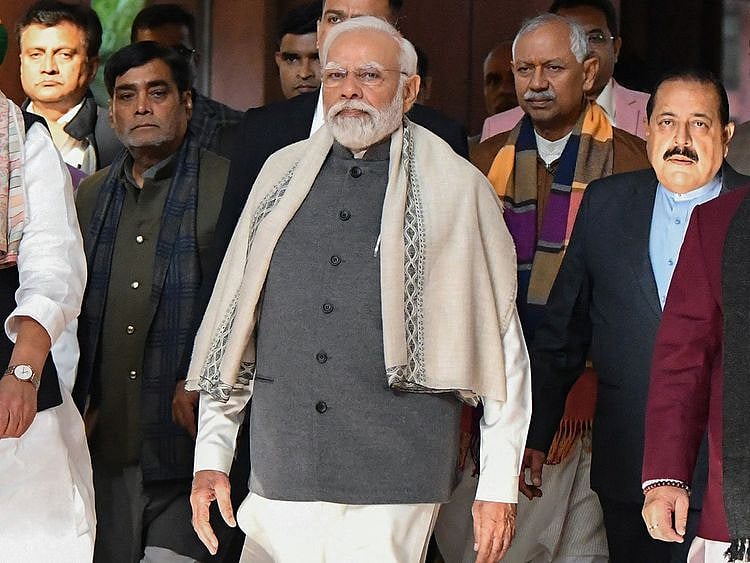Parliament gridlock: Narendra Modi’s third term will bring new opportunities
New Gen of Indian kids will soon have no memory of any other leader apart from Modi

Can a parliamentary democracy function effectively without an opposition?
In India, we are on the brink of finding out, as a total of 141 Members of Parliament have been suspended from the House during the current winter session of Parliament.
This includes 95 from Lok Sabha and 46 from Rajya Sabha and marks the last full session of the 17th Lok Sabha before the next general elections.
The role of the opposition is extremely crucial in a parliamentary democracy, serving as the critical bulwark within the legislature to keep a check on the elected government of the day.
Without a system of checks and balances, the executive can potentially push through bills that become law in both houses without necessary amendments or oversight.
A senior opposition leader notes, “Across the world, we see a diminishing role of democracy, with people yearning for a strong leader without any checks. But we should observe where it has led the world — the Gaza killings by Israel, as Benjamin Netanyahu, caught by his own security incompetence, lashes out at a helpless Gaza, even attacking hospitals.”
Preserving democratic practice
Indians have always jealously guarded democracy, especially post the Indira Gandhi-imposed emergency, the 21-month period from 1975 to 1977. However, for those born in the post-emergency era, the urgency in preserving democratic practice seems to be missing.
This, dear readers, is an honest confession and perhaps explains the yearning that India has for a strong leader and impatience with the sometimes tedious process of democracy in action.
Except for Indira Gandhi, all Indian Prime Ministers, cutting across party lines, have been avowed democrats, from H.D. Deve Gowda, the first BJP Prime Minister, Atal Bihari Vajpayee, to Manmohan Singh.
India’s two-term PM, Narendra Modi, went underground during the Gandhi-imposed emergency and has been vocal about Indian democracy, calling us the “mother of democracy” in his addresses.
Modi is currently the “strong leader” who India is enamoured with in its current political mood. The opposition is in disarray, lacking the capacity even to organise a meeting, let alone discuss seat sharing.
Argument for more democracy
India’s oldest political party, the Congress, has lost its political edge, with the entire Gandhi-heavy leadership facing a crisis of political credibility.
The Congress consistently falls short against the Modi-led BJP, as seen in the recent assembly elections in Madhya Pradesh and Rajasthan, winning Telangana after earlier getting wiped out in the new state.
Modi is widely expected to win a record third term, equalling our first Prime Minister, Jawaharlal Nehru’s record in office. The new generation of Indian kids will soon have no memory of any other leader in Delhi apart from Modi.
With this kind of political dominance in the Centre, I would argue for more democracy, not less, specifically the Westminster model India has adopted.
With this full-spectrum political dominance, Modi has the chance to go down in history as the leader who most scrupulously preserved and lived Indian democracy. All leaders crave a term-defining legacy, and this could well be Modi’s — that despite the temptation and with the weakest opposition in Indian history, he adhered to democratic norms in full.
This would involve taking up the mantle of a statesman, a real “Vishwaguru,” and asking the Speaker to reconsider the decision to suspend the opposition leaders.
Then, full adherence to the checks and balances of democracy, such as preserving the Right to Information (RTI) and stopping the misuse of central investigative agencies, such as the Enforcement Directorate, Income Tax, and Central Bureau of Investigation.
In a democracy, the opposition is an opponent, not an enemy. A third term in office is a rare opportunity to go down in history as a leader who truly nurtured democracy.
Network Links
GN StoreDownload our app
© Al Nisr Publishing LLC 2026. All rights reserved.